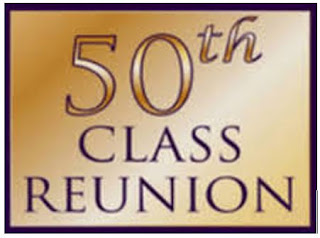In 2019, Rob began previewing the book he’s writing about what he calls “The Dollarway Syndrome” – the proclivity white Americans have for treating individual black Americans with kindness, civility, and compassion while, at the same time, supporting and espousing political and social policies that retard black progress. In this post, he relates more about how The Dollarway Syndrome works.
I’ve organized the book into three parts. The first three chapters comprise a memoir in which I relate basic facts about me and report incidents and stories that describe the Dollarway Syndrome. These incidents and
stories mostly occurred during my time at Dollarway, the small, Pine Bluff, Arkansas high school from which I graduated in 1969. Part two explores the connection between geography and race in America and some basic human behavior concepts. It serves as a bridge between the memoir section and part three, the portion of the book in which I offer explanations for the Dollarway Syndrome, what it means in our broader racial context, and how we might minimize its negative effects. Part three connects the Dollarway Syndrome with ideas about race discrimination offered by scholars, journalists, and others who focus on racial issues.
Today, I relate part of a story from the memoir chapters that harkens back to a political campaign in which Henry, Woodson, and I all took great interest – the 1966 Arkansas governor’s race between moderate
Republican Winthrop Rockefeller and the Democratic nominee, arch segregationist state supreme court Justice Jim Johnson. Rockefeller, who won and for whom Henry later worked, vigorously courted black voters
while Johnson reportedly regularly tossed round the n-word. The encounter I describe with one of my white classmates left a lasting impression because it shook me and represented my first experience with the duality of the Dollarway Syndrome.
Reading Partners
I arrived at Dollarway as a sophomore in 1966, attending under a freedom-of-choice desegregation plan that lets students pick their school. Only a handful of blacks (three in my class) elected Dollarway. Most remained at all-black Townsend Park High.
One of my white classmates noticed I carried around paperback books that weren’t on our English class reading list. He shared with me that he was also an avid reader and fan of the Erle Stanley Gardner Perry Mason novels
he’d noticed me reading (the popular television series starring Raymond Burr had just ended). For several weeks, this student and I cultivated a friendship based on our mutual affinity for those novels, whispering back and forth and passing notes in study hall about the latest one we’d started reading.
I felt this student and I developed a genuine friendship based on mutual respect and trust.
Unlike other white Dollarway students, he never used racial slurs. We interacted in a way that made me feel his equal. For a few weeks, I thought of him as the best friend I had at Dollarway, white or black. That’s why I felt betrayed by what happened a little later.
A Locker Room Conversation
Besides English class, this student and I took physical education together. One day in October, with the hot gubernatorial election nearing its climax, as we dressed after gym class, he asked me, “Hey, Wiley, you think ol’ Rockefeller’s gonna win the election?”
I hesitated. Should I make known my
intensely pro- Rockefeller views? I wondered how being honest with him would affect our friendship, since I knew many white Dollarway students favored Johnson.
“I don’t know,” I replied. “What do you think?”
“I don’t know who’ll win. I know who I hope wins.”
I hung back, acknowledging the first part of his statement, but ignoring the second part. “I can’t say now who’ll win. It’s close, real close from what I hear.”
“I don’t like Rockefeller.”
My heart sank a little with his words, but I only nodded and waited for his reason. I lifted my eyebrows but remained silent in the moment.
“Johnson will be stronger,” he continued. “You know, tougher. Rockefeller seems weak to me.”
“I don’t know,” I said, buttoning my shirt,
picking up my gym bag, and moving toward the door. “I guess we’ll just have to see how it turns out.” I left before he could say more. Later, I reflected on his last words. They nagged at me.
After thinking about it a long time, really until after things white people said during the 1968 elections two years later, I realized what my reading partner probably meant. He meant ‘stronger’ and ‘tougher’ on blacks. I’ve always believed he preferred not saying that to me, given the time we’d spent together and the decency he’d shown toward me. I assume he knew talking in overt racial terms would jeopardize the friendship. For his own reasons, I imagined he didn’t want that.
Far worse instances of white people engaging in racially insensitive behavior after befriending me occurred during my Dollarway years. This one stung so much because it was the first.
This student and I remained friends for most of the rest of that school year. We drifted apart over the remaining two years of high school. The relationship was never the same after what happened in the fall of ’66. As I saw it, being for Jim Johnson and recognizing racial equality wasn’t possible. By being friends with me and supporting Johnson, was he saying it was? I’d never considered such an idea and I’m still troubled by people who’d suggest that. One thing was clear after that locker room conversation. I’d seen something I never had before. I’ve been thinking about it ever since.





















